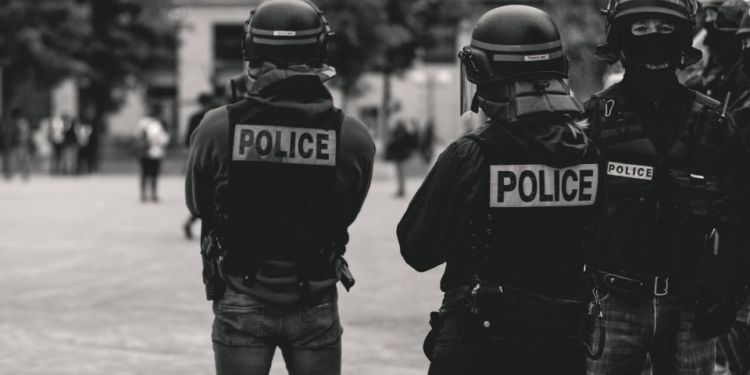The enforcement of Covid-19 related restrictions has dangerously increased police violence worldwide, according to a report published by the World Organisation Against Torture (OMCT).
The report highlights the need to apply the international legal anti-torture framework to counter this alarming trend, which is not limited to authoritarian countries.
According to the OMCT Secretary General, Gerald Stanerock “police brutality is nothing new, but the policing of the sanitary emergency has provided law enforcement with increased powers, which have in turn led to a spike in the abuse against citizens and worsened the lack of accountability.
“Another aggravating factor has been the lack of monitoring by civil society, as Covid-19 restrictions often prevent human rights groups from operating in the field. The victims tend to be marginalized groups such as racial and ethnic minorities, migrants, and the poorest members of society.”
The report revealed that “while torture and other forms of ill-treatment often take place in detention, they can increasingly be seen on the streets of cities from Moscow to Minneapolis, at checkpoints, to disperse protests, during curfew enforcement or at countries’ borders.
“In each of these cases, law enforcement officials use brutal methods and dangerous weapons. Examples include the 2019 use of rubber bullets in Chile that led to over 200 people losing their sight, the killing of George Floyd in the United States, the brutal repression of public demonstrations in Algeria, Belarus, Colombia, Hong Kong, Iraq, Myanmar, Nigeria or Russia.”
The report also noted that weapons used for crowd control have become more diverse in recent years and included in some instances military-grade weaponry. This has resulted in severe health consequences.
Supposedly “non-lethal” weapons, such as tasers or stun grenades, can also cause severe injuries, lasting disabilities, or even death. The indiscriminate use of chemical irritants – such as tear gas – can be risky for vulnerable people. Additionally, it helps propagate Covid-19.
The report is the result of a recent briefing organised by the OMCT for the members of the United Nations Committee Against Torture, with the participation of several other prominent experts with legal, medical and field experience.
Participants discussed both challenges and best practices in applying legal protections against torture to the use of force by law enforcement officials outside custody.
The briefing makes a series of recommendations that go from the need to clarify when and what weapons should be allowed for crowd control to the urgency of addressing and sanctioning police brutality as a form of torture or other ill-treatment.


Comments 1